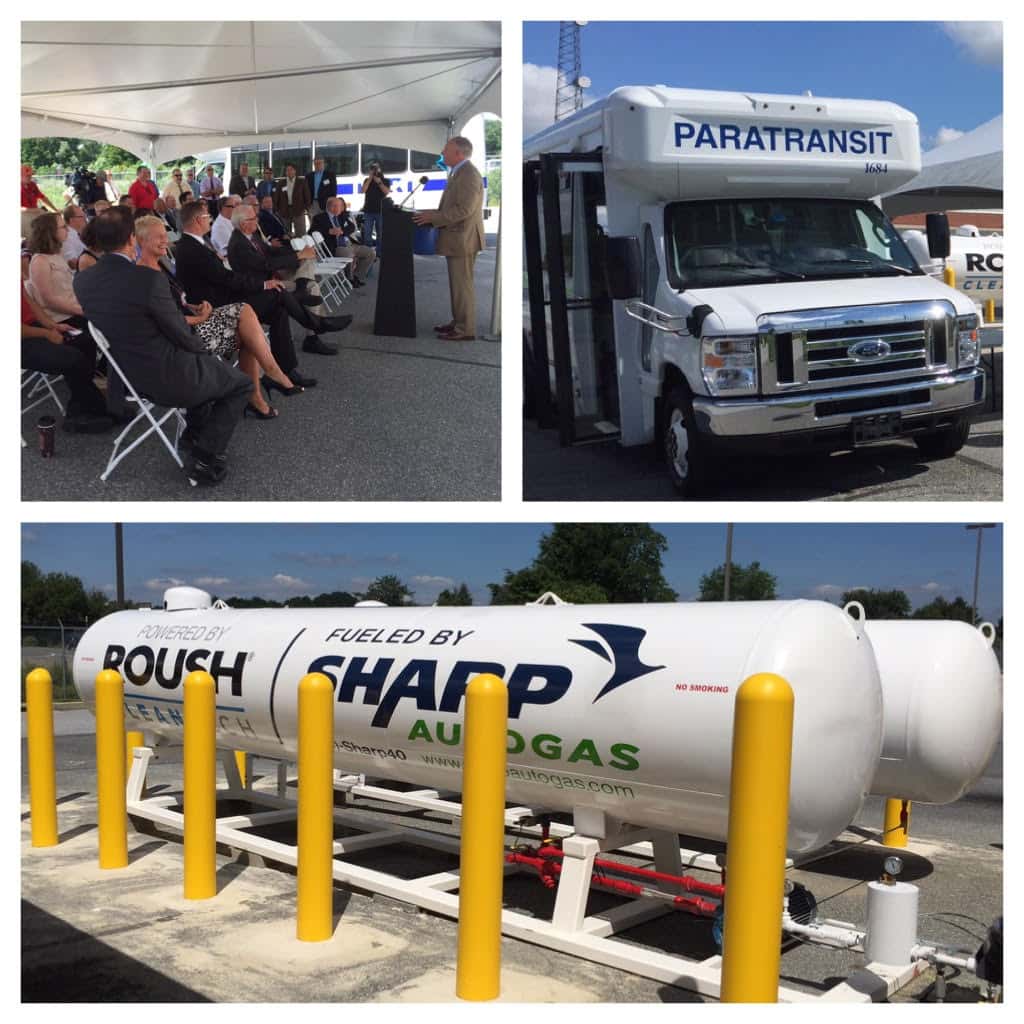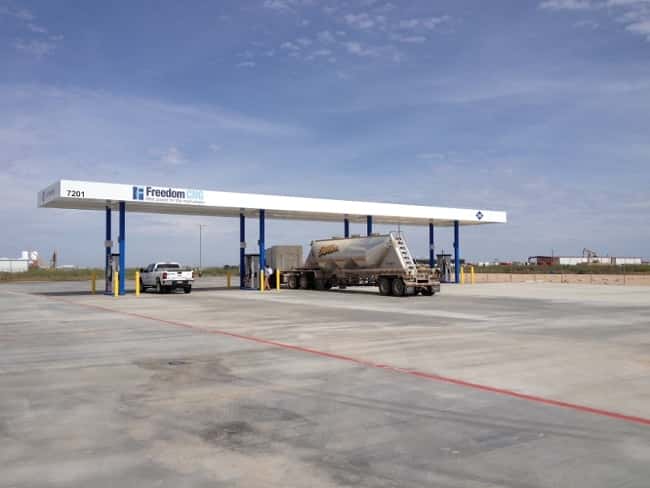Delaware Transit Corp. (DTC) has cut the ribbon on a new propane autogas fueling station in New Castle, Del., and revealed plans to significantly grow its fleet of propane-powered buses for its DART paratransit service.
After a two-year pilot program testing five autogas paratransit buses, the transit agency purchased 50 more this year and will buy an additional 75 by 2018. That will bring the total number of autogas vehicles in the DART paratransit fleet to 130 – almost half the fleet. Each of these vehicles is built on the Ford E-450 chassis with 6.8L V10 engine and equipped with a ROUSH CleanTech propane autogas fuel system.
“Our first five propane-fueled buses collectively traveled 450,000 miles with no fuel-system-related failures and saved $15,000 in fuel costs alone,” says John T. Sisson, CEO of DTC. “That, combined with the reduction in greenhouse-gas emissions, made it an easy decision to expand the propane program.”
Currently, DTC pays $0.78 per gallon for autogas compared with $1.75 per gallon for gasoline.
“By 2018, paratransit buses, and this propane-fueling station, and one in Georgetown, will be essential to daily operations,” comments Delaware Department of Transportation Secretary Jennifer Cohan.
Todd Mouw, vice president of sales and marketing at ROUSH CleanTech, says the ribbon-cutting event celebrated “the private/public partnership between Delaware Transit Corp. and ROUSH CleanTech. The agency has chosen a clean-burning, American-made and abundant fuel to power its paratransit buses.”
Sharp Energy, a subsidiary of Chesapeake Utilities Corp., will provide the fuel supply for the DART paratransit buses, along with providing technical and maintenance support for DART’s vehicles and fueling stations.
“Chesapeake Utilities Corporation is committed to investing in sustainable clean energy and improving our overall air quality. Cleaner alternative fuels like Sharp Energy’s propane autogas help reduce emissions,” says Bob Zola, president of Sharp Energy. “As we expand our autogas fueling station infrastructure, we can provide greater access to this low-cost, domestically produced fuel.”
Photos courtesy of ROUSH CleanTech’s Twitter page







